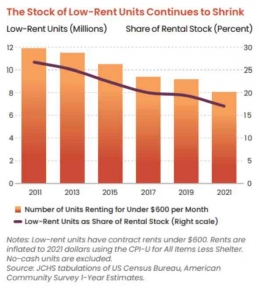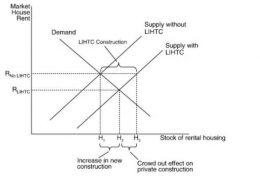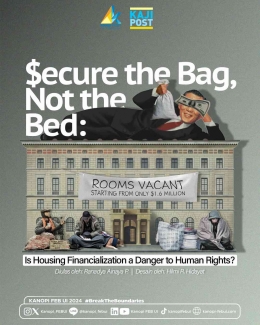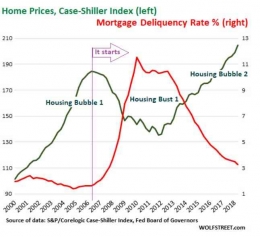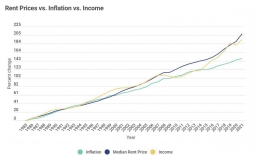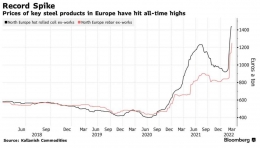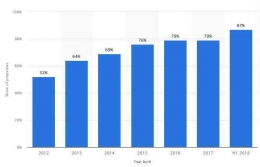These findings highlight how vulnerable groups like low-income communities are at the risk of being denied their basic rights to have a shelter while wealthy investors are racing to fill up their bags with the rent profits earned from their high-end housing investments.
Should the Government Subsidize Housing Procurement?
Although we have discussed how large property investors devour the idea of housing financialization, it is only rational for investors to be profit-driven. Therefore, today governments are implementing policies in an effort to combat the housing unaffordability that is exacerbated by housing financialization. One of the policies applied in the US are Low Income Housing Tax Credit (LIHTC), where the government would subsidize the construction of low-income housing. Now we raise the question, does publicly provided and subsidized low-income housing actually increase the stock of housing?
A research by Sinai and Waldfogel (2002) found that government programs do enlarge the total stock of housing and reduce rent prices, despite not being on a one-for-one basis. For every three units of government subsidized housing, there are two units less of housing that would have been provided by private markets. This is also proven in the implementation of LIHTC policy according to the research conducted by Eriksen & Rosenthal (2010) as can be seen in Figure 6. H3-H2 represents unsubsidized private construction that is “crowded out” by the LIHTC program, resulting in H2-H1 increase in housing stocks rather than H3-H1.

The research suggests that due to the substantial displacement of private rental housing construction as a result of the LIHTC program, low-income provided government housing should consider being built in a location where low-moderate rental housing opportunities are less found, such as in a middle to higher income neighborhood. Because there are no competitions, the crowding out effect could be minimized.
Housing financialization has created an environment in the housing market that favors the wealthy at the expense of the low and poor. Governments around the world should increase their supervision and efforts to make sure its people have a roof over their head, because a home is not an investment, it is a right.
Ranadya Ainaya Putri | Ilmu Ekonomi 2022 | Vice Manager Divisi Kajian KANOPI FEB UI 2024/2025
References
Abraham, R. (2023, March 31). Tenants of America's Biggest Landlord Form Union to Fight Evictions, Rent Hikes. VICE. https://www.vice.com/en/article/epvdzw/blackstone-tenants-union-san-diego-evictions-rent
Abraham, R. (2023, March 31). Tenants of America's Biggest Landlord Form Union to Fight Evictions, Rent Hikes. VICE. https://www.vice.com/en/article/epvdzw/blackstone-tenants-union-san-diego-evictions-rent








